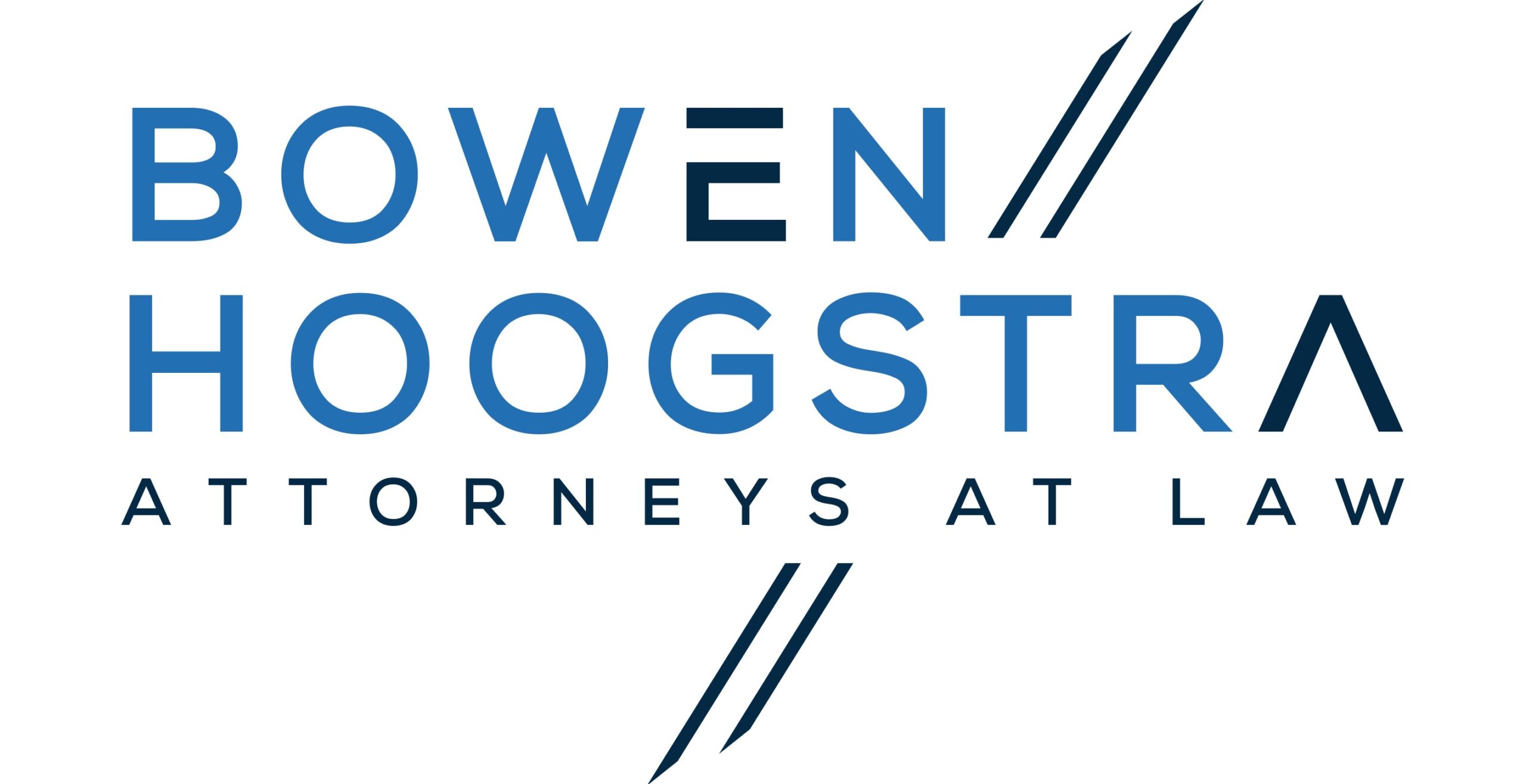Are you struggling to collect unpaid debts, wondering, “Can I sue someone who owes me money?” It’s a question many individuals and businesses find themselves asking when faced with the common problem of borrowers failing to fulfill their financial obligations.
The answer to this question is yes – you can indeed file a lawsuit against a debtor for unpaid debts. However, there are several things you need to consider before you can take legal action. In this article, our knowledgeable Muskegon business lawyer will discuss the legal intricacies of debt collection in Michigan, helping you understand your rights and options as the creditor.
- Understanding Debt Collection
- Legal Options in Michigan
- Alternatives to Lawsuits
- We’re Here to Help You Collect Your Accounts Receivable
Understanding Debt Collection
Debt collection is the process of pursuing payments of debts owed by individuals or businesses. When an individual borrows money, that person is obligated to repay the borrowed amount within a specified timeframe and under certain terms and conditions.
Unpaid debt occurs when borrowers fail to fulfill their financial obligations, leading to overdue payments or outstanding balances. For example, in the context of renting a property, if a tenant consistently fails to pay monthly rent on time or neglects payments entirely, it leads to unpaid debt for the landlord. The tenant’s failure to meet their payment responsibilities compels the landlord to take necessary actions to resolve the situation.
If you find yourself in the frustrating position of lending money to someone who is now avoiding repayment, there are several steps you can take before considering legal action. Here are some of them:
-
- Communication. Initiate an honest conversation to understand the borrower’s situation and reasons for not paying. Empathy and understanding can go a long way in finding a resolution. If the borrower is facing financial difficulties, explore the possibility of setting up a reasonable repayment plan.
- Negotiation. Consider proposing a repayment plan that takes into account the debtor’s financial situation, which can involve extending the payment period, reducing interest rates, or even settling for a partial payment. Negotiation allows you to find common ground and work towards a resolution without resorting to legal action.
- Documentation. Maintain thorough records of all communication with the debtor, including dates, times, and details of conversations. Proper documentation can serve as crucial evidence in the event legal action becomes necessary. If negotiations break down and you have to escalate the situation to the courts, your detailed documentation acts as proof of your attempts to resolve the matter amicably.
Legal Options in Michigan
Small claims courts handle relatively minor disputes, including unpaid debts, up to a certain monetary limit. The process is relatively quick and straightforward, allowing individuals and small businesses to represent themselves without legal representation. In Michigan, the maximum claim amount for small claims court is up to $6,500. Small claims court provides a cost-effective and accessible way to pursue unpaid debts without the complexity of formal legal proceedings.
For larger unpaid debts exceeding the small claims court limit, you can file a civil lawsuit in the local district court, which involves initiating formal legal proceedings against the debtor. In civil litigation, both parties present their case, and the court makes a decision based on the presented evidence. Civil litigation requires substantial documentation and legal expertise. Hiring a qualified Muskegon business lawyer ensures proper legal representation and increases the chances of a favorable outcome.
In both small claims court and civil cases, a judgment represents the court’s dispute resolution, providing a legal basis for the winning party to collect the unpaid debt or seek other remedies. If you win a judgment against the debtor, the court will provide guidelines for post-judgment collections. If the debtor fails to comply, you can return to court after 21 days and file additional documents to collect the unpaid debts using other legal means. Michigan provides several avenues for enforcing judgments, which include:
-
- Wage Garnishment. A portion of the debtor’s wages or salary is withheld by the employer and redirected to you until the debt is satisfied.
- Bank Account Levies. With this method, you can instruct the bank to freeze the debtor’s account and seize the funds directly to cover the unpaid debt.
- Property Liens. A lien acts as a legal claim against the property, making it difficult for the debtor to sell or refinance the asset until the outstanding debt is paid off.
Alternatives to Lawsuits
When collecting debt from someone, there are alternatives to lawsuits that can be more cost-effective and less time-consuming. Mediation, for instance, is a voluntary, informal process where a neutral third party, known as a mediator, assists both parties in reaching a mutually agreeable resolution. Unlike lawsuits, mediation focuses on open communication and compromise rather than adversarial litigation. It is often a quicker and less formal method of debt collection than going to court.
Arbitration, on the other hand, is a more formal alternative where an arbitrator, acting as a private judge, reviews evidence and arguments from both sides and makes a final decision in their dispute. While it’s a structured process, it is generally faster and less expensive than a full-blown court trial. In arbitration, the arbitrator’s decision is legally binding, meaning both parties are obligated to abide by the outcome, regardless of whether both parties agree with it.
We’re Here to Help You Collect Your Accounts Receivable
Are you having trouble recovering what you are rightfully owed? If so, Bowen Hoogstra Law is here to assist you. We offer tailored and comprehensive debt collection services to meet your specific needs. Our experienced Muskegon business lawyers specialize in strategic negotiations, aiming for favorable repayment agreements. With in-depth knowledge of Michigan debt collection laws, we can help you prepare the necessary legal documents and provide legal guidance in small claims court matters or representation in civil litigation, securing judgments in your favor. Contact us today at (231) 726-4484 or here to discuss your case.


